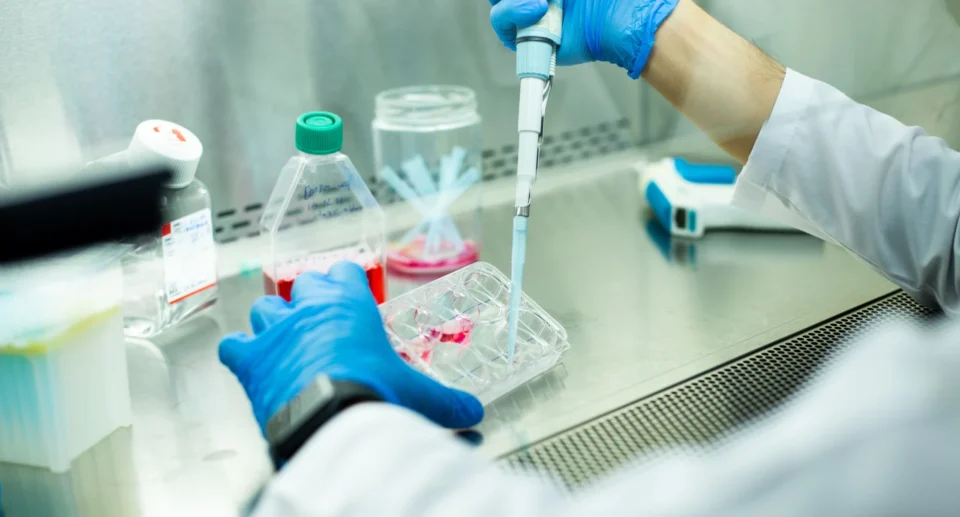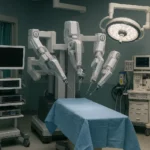CAR-T Cell Therapy: Process, Benefits, and Cancer Cure Potential

Cancer treatment has progressed, and one of the newest developments is CAR-T cell therapy. The new therapy gives hope to patients, particularly those whom traditional medications such as chemotherapy and radiation therapy have not reassured.
CAR-T therapy is an immunotherapy that relies on the patient’s immune system to destroy the cancer cells. Unlike chemotherapy, which destroys both cancer cells and normal cells, CAR-T destroys fewer cells with less damage but provides improved results.
If you or the person you care about is set to receive blood cancer treatments like leukemia and lymphoma, what you read here about CAR-T cell treatment can change your life.
What is CAR-T therapy?
CAR-T therapy, or Chimeric Antigen Receptor T-cell therapy, reprograms the T cells of a patient, which are immune cells, so that they can destroy the cancer cells more effectively. It offers a highly individualised therapy with huge potential to treat relapsing cancers.
Unlike the outside-in assault of radiotherapy, CAR-T cell therapy assaults an inside-out foundation to broaden the immune system in its reach for targeting cancer.
How Does CAR-T Therapy Work?
The process of CAR-T cell therapy includes a few major steps:
- T-Cell Harvesting: Physicians harvest white blood cells called T cells from the patient’s blood.
- Genetic Alteration: T cells are genetically altered in a lab to identify and target the cancer cells.
- Multiplication: The T cells are replicated in large quantities.
- Infusion: The newly trained T cells are infused into the patient’s body to kill and eliminate the cancer cells.
- Monitoring: The safety and effectiveness of the patients are monitored periodically.
This treatment has transformed cancer treatment by employing the body’s immune system to recognise and kill the tumors.
Who is eligible for CAR-T therapy?
CAR-T therapy is used primarily to treat blood cancers like:
- Acute Lymphoblastic Leukemia (ALL)
- Non-Hodgkin’s Lymphoma (NHL)
- Multiple Myeloma
Scientists are exploring CAR-T cell therapy to treat solid tumors and autoimmune diseases. Research shows it may help with conditions like lupus and multiple sclerosis.
Benefits of CAR-T Therapy
CAR-T therapy is, in general, better than conventional cancer treatment:
- Highly Personalised Treatment
Uses the patient’s own immune cells, specially modified to attack their cancer directly. - Long-Term Remission
Many patients stay cancer-free for years after just one CAR-T treatment cycle. - Targets Only Cancer Cells
Unlike chemotherapy or radiation, CAR-T attacks cancer cells while sparing healthy ones. - Promising for Autoimmune Diseases
Research shows CAR-T may help treat diseases like lupus and multiple sclerosis in the future. - Hope for Resistant Cases
Ideal for patients whose cancer didn’t respond to chemo, radiation, or bone marrow transplant. - Fewer Side Effects
Most patients experience temporary side effects—no hair loss, nausea, or long hospital stays like traditional therapies. - One-Time Infusion Therapy
CAR-T is often a single infusion, not months of repeated treatments—making it easier on the body. - Growing Use in Blood Cancers
Effective for leukemia, lymphoma, and multiple myeloma—and trials are expanding rapidly. - FDA and Global Approvals
CAR-T therapy is approved in several countries and is now available in top hospitals in India.
CAR-T Therapy Success Rate
The CAR-T cell therapy will work depending on the health of the patient and the type of cancer. However, studies have found that:
1. Leukemia: 90% or better remission in several patients.
2. Lymphoma: Remission is approximately 60-80%, and most of them again relapse to remission.
3. Multiple Myeloma: Preliminary results demonstrate a response rate of over 70%.
Although CAR-T is not a cure, the high success rate has placed it among the best treatments of today.
Challenges and CAR-T Risks Therapy
Similar to any other kind of relaxing medicinal treatment, there are risks to CAR-T therapy, such as:
1. Cytokine Release Syndrome (CRS): A dangerous immune reaction causing fever and inflammation.
2. Neurological Effect: Mild confusion, amnesia or speech trouble.
3. Expensive: Since the treatment is personalised to the requirements of an individual, it becomes very costly.
Physicians keep patients under strict observation after the treatment to address these threats most effectively.
When Should You See a Doctor About CAR-T Cell Therapy?
If you or your loved one has been diagnosed with blood cancer like leukemia, lymphoma, or multiple myeloma—and other treatments like chemotherapy or radiation haven’t worked—it’s time to talk to a specialist about CAR-T cell therapy.
You should also see a doctor if:
- Your cancer has relapsed or keeps coming back
- You have not responded well to standard treatments
- Your doctor suggests exploring advanced options
- You want a second opinion about immunotherapy
- You’re considering treatment in India for affordability and quality care
Don’t wait for things to get worse. Early consultation can open the door to life-saving treatments like CAR-T therapy.
CAR-T Cell Therapy vs Bone Marrow Transplant: Which One Is Better?
- Future Potential
CAR-T is an evolving, high-precision treatment with growing success. Bone marrow transplant is time-tested with decades of proven results.
2. How They Work
CAR-T uses your own immune T-cells, reprogrammed to fight cancer. Bone Marrow Transplant replaces damaged stem cells with healthy ones.
3. Best Use Cases
CAR-T is used for cancers that come back or don’t respond to other treatments. Transplants work well with matched donors and specific cancers.
4. Recovery Time
CAR-T usually has a faster recovery with fewer side effects. Transplant takes longer to recover and needs close monitoring.
5. Personalization
CAR-T is a customized therapy made for your body. Bone marrow transplants follow a more standard protocol, though still effective.
6. Side Effects
CAR-T can cause temporary fever or cytokine release syndrome. Transplant may lead to graft-versus-host disease and other complications.
7. Hospital Stay
CAR-T often requires a shorter stay. Transplant usually means weeks of hospital care and follow-up.
8. Cost Difference
CAR-T is newer and may be more costly in some countries, but India offers both treatments at a fraction of global prices.
CAR-T in Pediatric Cancer: A Ray Of New Hope
- Highly Effective for Relapsed ALL
CAR-T therapy has shown excellent results in children whose leukemia came back after other treatments failed. - Works When Chemo & Radiation Don’t
It offers hope for kids who didn’t respond to traditional cancer treatments like chemotherapy or radiation. - Shorter Hospital Stay
Most children recover faster and spend less time in the hospital compared to bone marrow transplants. - Fewer Long-Term Side Effects
CAR-T therapy is less likely to cause growth problems or long-term organ damage in kids. - Approved for Children by FDA
CAR-T is FDA-approved for pediatric use and is now being introduced in top hospitals around the world. - Safe Under Pediatric Protocols
With expert monitoring and child-focused care, CAR-T is delivered safely even in young patients. - Preserves Quality of Life
Children return to school, play, and normal life faster with fewer disruptions. - India Offers Global-Standard CAR-T for Kids
Leading Indian hospitals now offer advanced CAR-T therapy for children at affordable costs.
Making CAR-T Therapy Affordable and Accessible
- CAR-T is costly due to complex lab work and personalization.
- In India, it’s 40–70% cheaper than in the West.
- Local biotech and off-the-shelf research are reducing costs.
- Medical tourism helps global patients access affordable, quality care.
- Expanding hospitals and funding can improve access worldwide.
CAR-T Treatment in India
India is emerging as an international-standard CAR-T cell treatment center due to a string of strong reasons:
1. World-Class Facilities
India’s top hospitals are equipped with advanced labs, cutting-edge machines, and global safety standards.
2. Highly Skilled Doctors
CAR-T specialists in India are trained in the best medical institutions across the US, UK, and Europe.
3. Affordable Treatment Costs
CAR-T cell therapy in India is much more budget-friendly compared to the US or Europe—without compromising quality.
4. Faster Access to Treatment
Minimal waiting time ensures that patients can start life-saving CAR-T therapy sooner.
5. Global Patient Care Services
Hospitals in India offer visa help, airport pickup, and multilingual staff to support international patients.
6. Ongoing Clinical Trials & Research
India is actively conducting CAR-T research, making new therapies more accessible and effective.
7. High Success Rates
Top cancer centers in India report excellent outcomes in treating blood cancers like leukemia and lymphoma.
8. Personalized Patient Attention
Each patient receives tailored care, with dedicated coordinators guiding them through every step.
Cost of CAR-T Therapy in India
The price of CAR-T cell therapy varies based on the hospital, treatment complexity, and patient status. While CAR-T treatment in the US or Europe costs $350,000-$500,000, experts estimate it to be 40-70% lower in India, with costs starting from $75,000.
The overall cost comprises:
- T-cell procurement and handling
- Hospital stay and supportive care
- Monitoring and follow-up
Therefore, Indian patients requiring CAR-T therapy must see specialists to receive a personalised treatment plan.
Why Should You Choose Regimen Healthcare for CAR-T Therapy?
At Regimen Healthcare, we provide the administration of treatment along with the following:
- Access to World-Class Doctors & Hospitals
We connect you with India’s top cancer specialists and leading hospitals for advanced care. - Affordable Treatment Plans
We design cost-effective packages tailored to your medical and financial needs. - Patient-Focused Support
From your first diagnosis to full recovery, our team stands by your side at every step. - Visa & Travel Coordination
We handle your visa, flight bookings, and hospital appointments for stress-free travel. - Support for Advanced Therapies Like CAR-T
We help you access breakthrough treatments like CAR-T therapy that save lives globally. - Second Opinions from Top Oncologists
Get trusted guidance before deciding on major treatments or surgeries. - Multilingual Care Team
Our coordinators speak your language—Arabic, French, Russian, Bangla, and more. - Personal Care Manager for Each Patient
A dedicated coordinator helps with appointments, updates, and post-treatment support. - Post-Treatment Follow-Up
We ensure proper follow-up care and remote consultations, even after you return home. - Safe & Comfortable Stay Arrangements
We help book trusted accommodations near hospitals for you and your companion.
Conclusion
CAR-T therapy is changing the way we fight cancer—offering real hope to patients who’ve already tried chemotherapy or radiation without success. With its powerful results, targeted action, and long-term benefits, CAR-T is leading a new chapter in cancer care.
Today, India stands at the forefront of this breakthrough, providing world-class CAR-T therapy at just a fraction of the cost seen in Western countries. For patients around the world, this means access to life-saving treatment that is both advanced and affordable.
The future of cancer care is here—and CAR-T is leading the way.
If you or your loved one is considering the possibility of this treatment, Regimen Healthcare can guide you through it.
Call/WhatsApp: +91-9310356465
Email: [email protected]
Visit: www.regimenhealthcare.com
We assist you in getting the best care at the best price—because the best is yours for your health!
Call us today to find out how your future can begin brighter!
FAQs
1. What cancers are treated with CAR-T therapy?
Doctors mainly use CAR-T therapy in the case of blood cancers like leukemia, lymphoma, and multiple myeloma. Researchers are also studying it in solid tumors.
2. How long is CAR-T?
The whole CAR-T cell therapy process would normally take 4–6 weeks; from the harvesting of the cells to, readjusting and infusing them.
3. What are the side effects of CAR-T therapy?
Side effects are inevitable and are fever, low blood pressure, fatigue, and neurological, which in most patients is reversible. Medical professionals can control all of it well.
4. How to access CAR-T therapy in India?
You can get consultation and treatment planning services from Regimen Healthcare in some of India’s best hospitals.
5. Is CAR-T cell therapy a one-time treatment?
Yes, in most cases, doctors design CAR-T as a one-time infusion. They closely monitor patients afterward to assess the response and manage any side effects.
6. Who is not eligible for CAR-T therapy?
Patients with severe organ dysfunction, active infections, or certain autoimmune conditions may not qualify. The oncologist determines eligibility after a detailed evaluation.
7. Can CAR-T therapy be used for children with cancer?
Yes, authorities have approved CAR-T for use in certain pediatric blood cancers, such as acute lymphoblastic leukemia (ALL), with promising results.
8. Is CAR-T therapy painful or invasive?
The infusion itself is not painful. Side effects like fever or fatigue may occur during recovery. The process involves blood collection, lab modification, and a simple infusion.
9. How soon do patients see results after CAR-T therapy?
Many patients begin to see positive changes within a few weeks after infusion, but doctors assess the full impact usually after 1 to 3 months through medical scans and tests.








